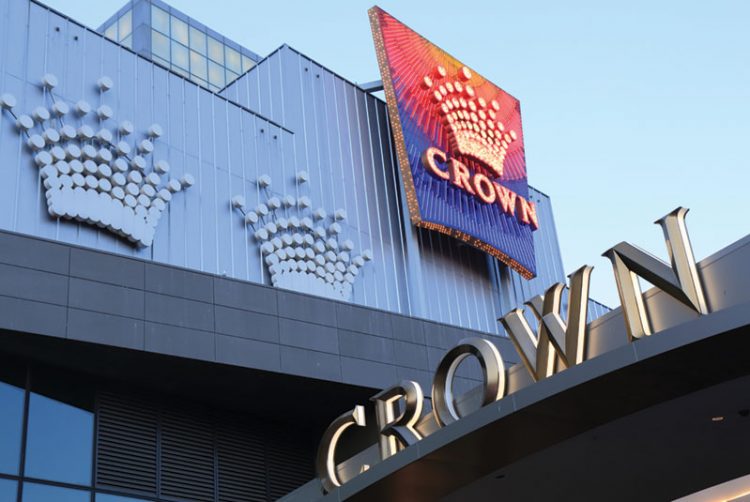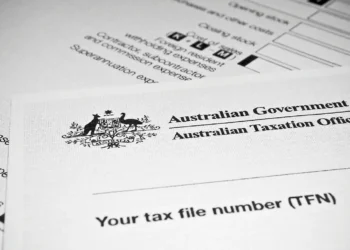In the wake of the recent inquiry into Crown Resorts, Paul Newson – former NSW regulator and now Principal at Australian law firm Senet Advisory – asks why the gaming industry is treated more harshly than many others.
Piling on the Victorian gambling regulator in the wake of the NSW Casino Inquiry is unambiguously de rigueur. Countervailing views do not get traction. After all, why bring attention to measured critical analysis and rebuttal when you can excite intrigue and scandal?
We all appreciate the media lens exaggerates a preferred, if often flawed narrative, and it seems more so when the protagonists are James Packer, Crown Resorts, the Victorian Commission for Gambling and Liquor Regulation (VCGLR) or gambling at large.
Demonizing Crown and sensationalising its past, but not insignificant, corporate governance and AML/CTF failures is irresistibly fashionable, as it seems are harsh assessments of the Victorian regulator.

A difficulty I have with this unthinking and frenzied narrative, aside from its lack of reasoned and measured perspective and, on one view, its disingenuous exaggeration of shortcomings relative to staggering failures in other sectors, is its frail grasp of gambling and AML/CTF legislative and regulatory arrangements.
An informed understanding of federal and state regulatory and law enforcement arrangements and responsibilities as they relate to anti-money laundering oversight and gambling regulation ought to be a precondition for emphatic commentary. The mob of newly minted casino and anti-money laundering regulatory experts rush to chasten the regulator and Crown for alleged inaction or ineptitude and decree with remarkable certainty the measures necessary to redeem robust casino oversight. These bald pronouncements comply with the narrative and are amplified in the media but fall awfully short of cogent assessment and criticism.
Regrettably, instead of examining the efficacy of the NSW gambling regulator and the conduct and performance of the only Sydney casino and wider NSW gambling sector, the inquiry applied its forensic lens and impressive resources to the past conduct of the Melbourne and Perth based casinos and the CPH and Melco share sale transaction in search of regulatory breaches and misdeeds.

In somewhat of an anticlimax, the inquiry report determined that concerns over the share transaction, the fundamental reason for initiating the inquiry, were not substantiated. But for pivoting the inquiry towards anti-money laundering compliance, which is squarely AUSTRAC’s domain and raison d’etre, the rationale for the inquiry might have been undercut. The inquiry purposefully lurching into AML regulatory matters belies AUSTRAC’s newly minted reputation as a formidable regulator, cemented by its AU$1.3 billion penalty against Westpac for its own AML failures, or perhaps lifts the curtain on the inadequacy of extant AML arrangements.
While acknowledging they are different creatures, I think it is instructive to compare – if only briefly for context, perspective and perhaps contrasts in approach – the NSW Special Commission of Inquiry into the Ruby Princess in April 2020. The Ruby Princess Inquiry was triggered following a COVID-19 outbreak when more than 2,650 people disembarked the cruise vessel without being tested. The outbreak has been associated with around 1,000 COVID-19 infections and 28 deaths.
The Ruby Princess Inquiry was efficiently conducted and found “serious”, “inexcusable” and “inexplicable” mistakes by NSW Health, but made limited recommendations, saying health authorities had recognized mistakes made, and would “do things differently if they had their time again.”
Commissioner Bret Walker SC observed in the introduction and overview to the Special Commission of Inquiry into the Ruby Princess Report:
“The Commission is fulfilling an executive, not judicial, function. Second, hindsight is used throughout the Report in order best to inform as to what went wrong and how it might be avoided in future. That exercise has only limited resemblance, nowhere near complete, to a court’s investigation of sine qua non causation, and to a court’s prospective judgement of alleged failures to achieve a reasonable standard of care.”
 Without overstating the comparison or in any way diminishing Crown’s corporate governance and AML/CTF shortcomings – it has much work to do – I think reasonable minds might identify some incongruence.
Without overstating the comparison or in any way diminishing Crown’s corporate governance and AML/CTF shortcomings – it has much work to do – I think reasonable minds might identify some incongruence.
Regulatory contraventions occur; indeed, AML shortcomings appear endemic in some sectors such as financial services. Organizations make missteps and fall short of regulatory obligations and community expectations; however, it is when such conduct is exacerbated by its wilfulness, repeated or ongoing nature or where an organization cavils and resists regulatory intervention and is found to be incapable or unwilling to adhere to an agreed remediation pathway, that the most severe sanctions and consequences ought to be incurred.
It is instructive to observe that on 20 October 2020, Liquor & Gaming NSW issued a media release, referring to the outcome of a disciplinary complaint against the Dee Why RSL Club. The Independent Liquor & Gaming Authority found that the club’s conduct was likely to encourage the misuse and abuse of gambling activities and ignored serious gambling addiction. The sanction imposed was a total of AU$100,000 in fines and the club was ordered to pay AU$99,628.05 towards the costs of Liquor & Gaming NSW’s investigation.
On one view this seems a light-handed sanction in response to damning findings that are incompatible with two principal objects of the NSW gambling regulatory framework – to minimise harm associated with the misuse and abuse of gambling activities and to foster responsible conduct in relation to gambling. It also reveals a stark dichotomy in regulatory approach and outcomes for responsible gambling obligations central to the integrity of the gambling regulatory framework.
A cursory review of the Royal Commission into Misconduct in the Banking, Superannuation and Financial Services Industry (FSRC) – launched by the Australian government in December 2017 and concluded in early 2019 – reveals it received more than 10,000 complaints about financial services entities from members of the public. The FSRC exposed misconduct by many financial services organisations, over many years and causing substantial loss to many customers and accruing substantial profits to entities concerned. The FSRC also found that the conduct had often broken the law and, where it had not, it had fallen short of community expectations. The FSRC held seven rounds of hearings and observed that the damage done by misconduct to individuals and to the overall health and reputation of the financial services industry had been large.
The scale of wrongdoing the FSRC revealed and the extent of its impact, including substantial consumer harm, is shocking. There is limited utility in attempting to compare the monstrous scale of the FSRC’s task and the scope of human misery wrought by the misconduct it surfaced, with the AML and corporate governance related shortcomings disclosed by the NSW Casino Inquiry. Suffice to say latent curiosity remains about the threshold for suitability in financial services.
The Gaming and Wagering Commission (GWC) of Western Australia (WA) has also now announced it is recommending that State’s Minister for Racing, Gaming and Liquor, establish its own independent inquiry under the Casino Control Act 1984 (WA). The reason for another independent Inquiry, armed with the powers of a Royal Commission, seems to be in response to advice from the WA State’s Solicitor’s Office that under Western Australian legislation, the GWC could not rely on the Bergin Inquiry to make findings in relation to Crown Perth. It seems political momentum has determined that the show must go on (a Royal Commission has also been announced in Victoria, home of Crown Melbourne).
Gambling occupies a strange position in the Australian cultural and political environment. Australian state and territory governments accrue sizeable taxation from gambling revenue, with the NSW Government forecasting AU$2.7 billion in gambling and betting taxation for 2020-21, up to AU$3 billion in 2023-24. Despite this sizeable contribution to public revenue, or perhaps because of it, the gambling sector is mostly received as an important but unpalatable stakeholder, sans the outward political closeness and media opportunities familiar to other less complicated industries.



































